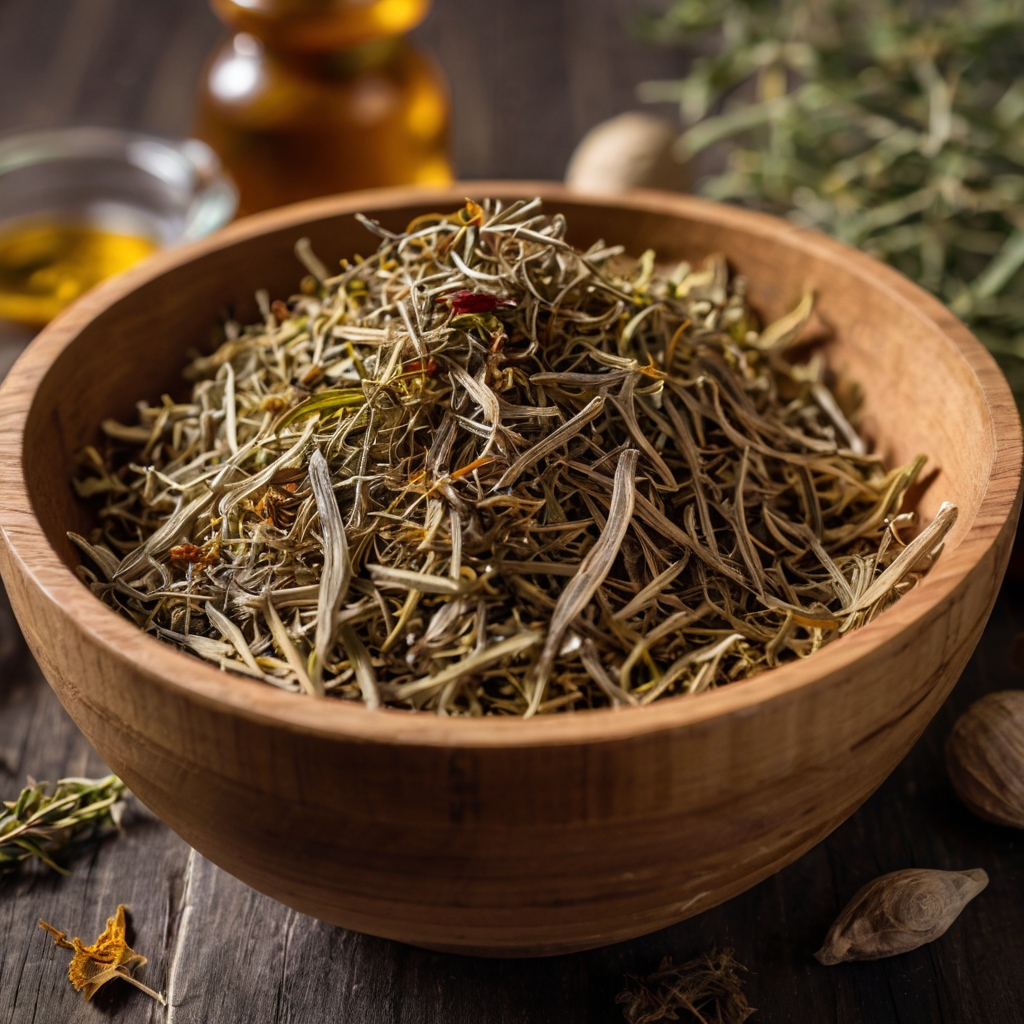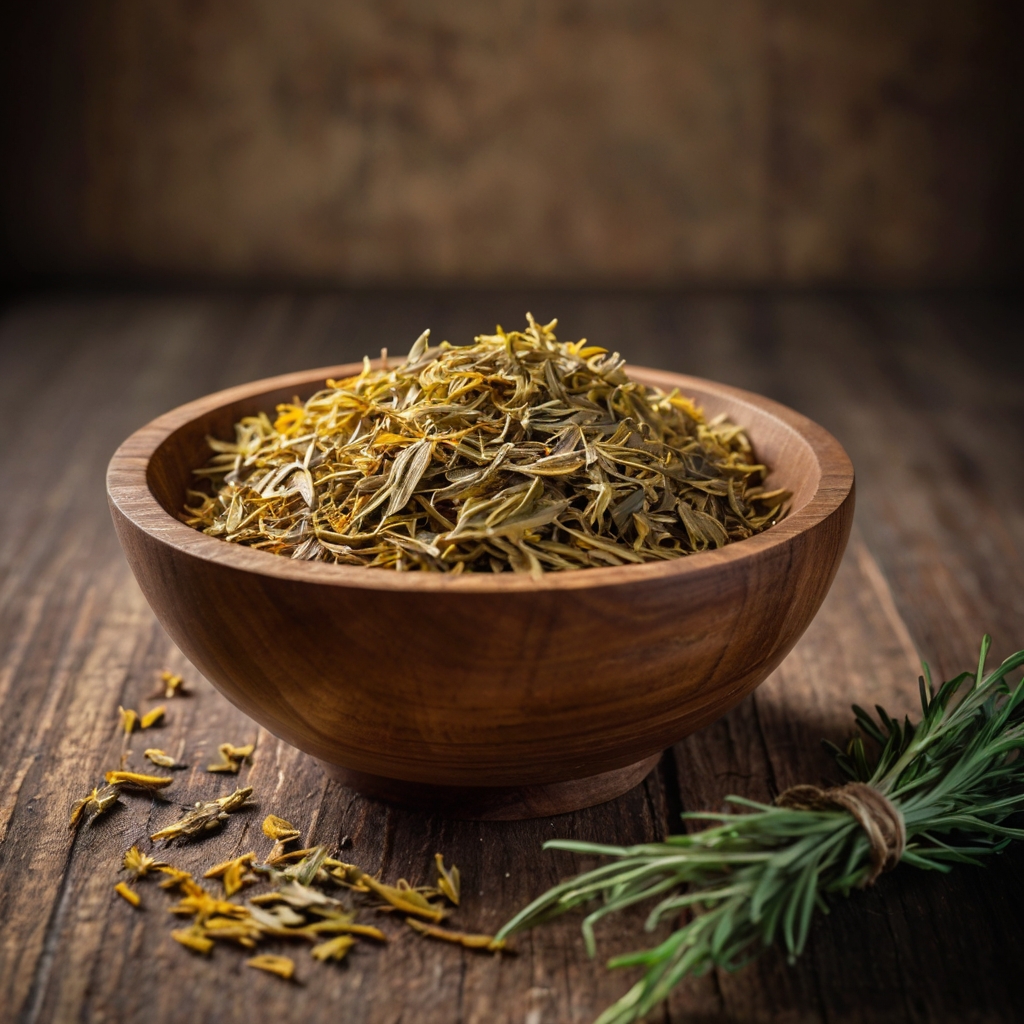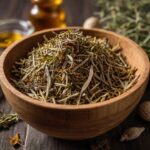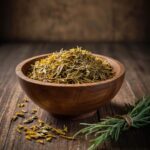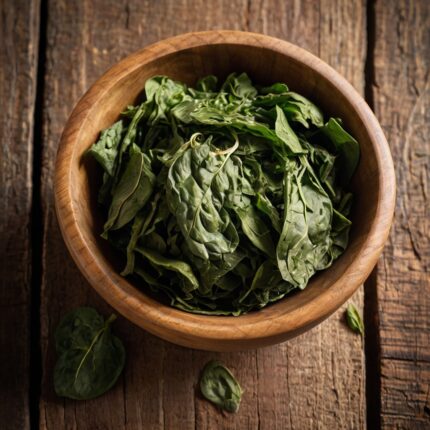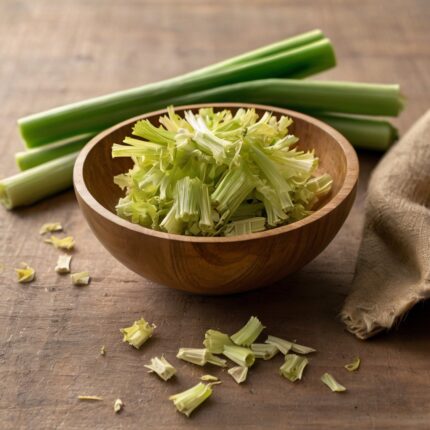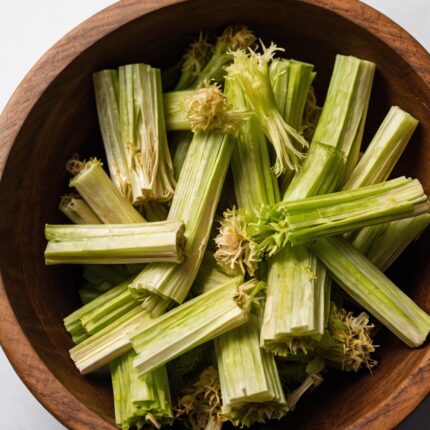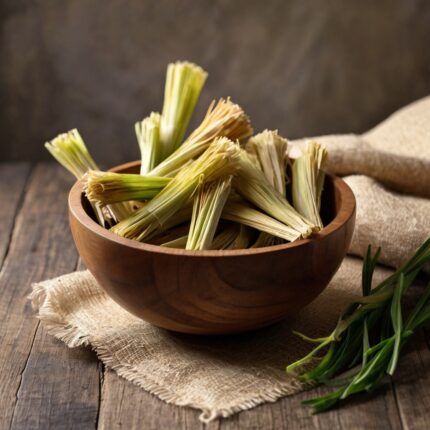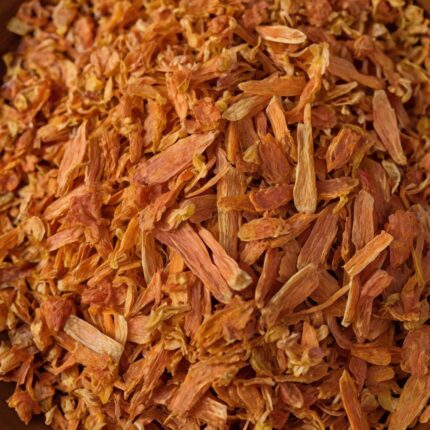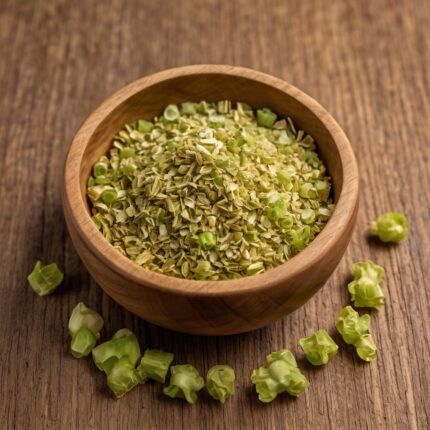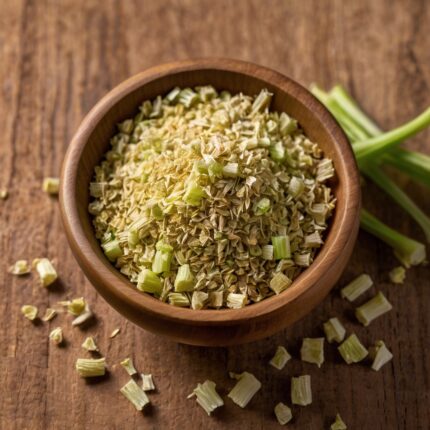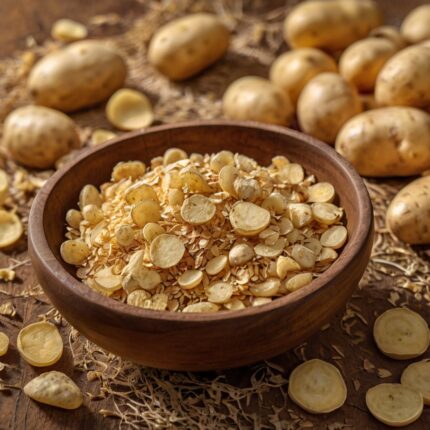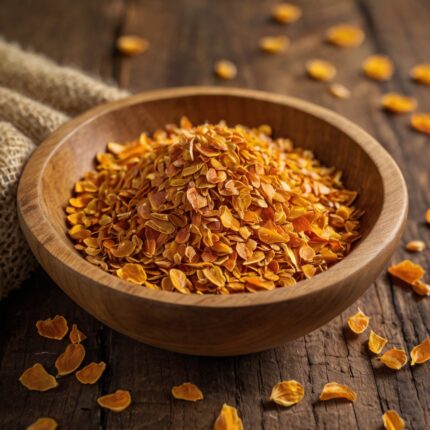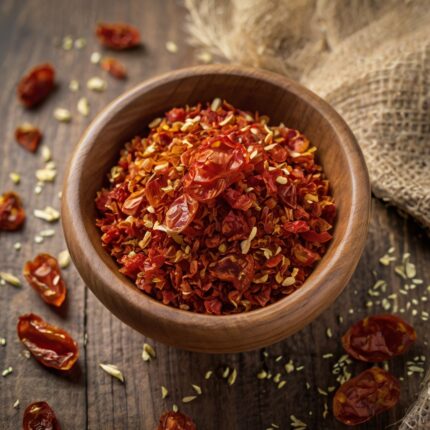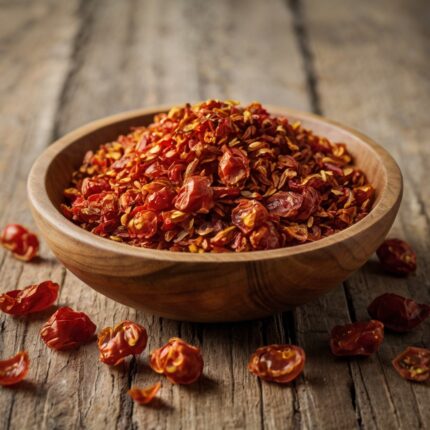Dried savory refers to the dried leaves of the savory plant, a spice commonly used in cooking for its unique peppery and slightly minty flavor. There are two main types of savory: summer savory (Satureja hortensis) and winter savory (Satureja montana). Both types are used in cooking, but summer savory is more common in culinary applications due to its milder flavor.
Dried savory is a convenient form of this herb that retains much of its aromatic properties and is a key ingredient in many Mediterranean and European dishes.
Key nutrients and health benefits:
-
Rich in vitamins and minerals:
- Vitamin A: Savory is an excellent source of vitamin A, which is essential for maintaining good vision, a healthy immune system, and healthy skin.
- Vitamin C: Provides a significant amount of vitamin C, which helps boost the immune system, support collagen production, and protect against oxidative stress.
- Vitamin K: Important for bone health and blood clotting.
- Iron: Provides a high amount of iron, which is essential for oxygen transport in the blood and energy production.
- Calcium and magnesium: Both minerals are important for maintaining strong bones, healthy muscle function, and nerve signal transmission.
-
Antioxidant properties:
- Savory contains compounds such as flavonoids, phenolic acids, and terpenes that act as antioxidants. These compounds help neutralize free radicals in the body, reduce oxidative stress, and may lower the risk of chronic diseases such as cancer, heart disease, and neurodegenerative conditions.
-
Digestive health:
- Savory has been traditionally used as a digestive aid. It is believed to help alleviate digestive discomfort, bloating, and gas. This herb may stimulate bile production, support the digestion process, and assist in breaking down fats.
-
Anti-inflammatory effects:
- Savory has natural anti-inflammatory properties. It may help reduce inflammation in the body and could assist in alleviating conditions such as arthritis, sore muscles, and other inflammatory diseases.
-
Antimicrobial and antifungal properties:
- Savory contains essential oils such as carvacrol and thymol, which have antimicrobial, antifungal, and antibacterial properties. These compounds can help combat infections and boost the body’s natural defenses.
-
Respiratory health:
- Savory’s properties, similar to those of menthol, make it beneficial for treating respiratory conditions. It can help clear nasal passages and alleviate symptoms of the common cold, coughs, and bronchitis.
-
Antispasmodic:
- Savory is often used in traditional medicine to reduce muscle spasms, cramps, and digestive disorders. It is believed to have mild relaxing effects on smooth muscles, particularly those associated with the digestive system.
Culinary uses of dried savory:
Dried savory is versatile and can be used to flavor a variety of dishes, especially those that are savory, rich, and herbaceous. It is commonly used in Mediterranean, European, and Middle Eastern cuisines.
-
Meat dishes:
- Poultry: Savory pairs well with chicken, turkey, and duck. It is often used in seasoning blends or directly in marinades for its peppery and herbaceous flavor.
- Lamb and beef: Savory complements the rich, bold flavors of lamb and beef. It is often used in stews, kebabs, and grilled meats.
- Sausages: In Europe, particularly in France and Italy, savory is often used in sausage recipes, such as pork sausages and meatballs.
-
Soups and stews:
- Hearty soups: Savory is a key herb in many bean soups, lentil stews, and vegetable-based soups. It is often combined with thyme, rosemary, and bay leaves.
- Pasta sauces: Add dried savory to tomato-based sauces, ragù, or Bolognese to add depth and complexity.
-
Vegetables:
- Grilled vegetables: Savory is an excellent addition to grilled vegetables such as potatoes, carrots, celery, and zucchini. It enhances the earthy flavors of the vegetables.
- **Stuffing**: Savory is a classic herb for stuffing, especially during the holiday season. It pairs well with bread, onions, and celery.
-
Bread and pastries:
- Herb bread: Savory can be used in savory breads, focaccia, or savory biscuits for flavoring.
- Flatbreads: Sprinkle dried savory on flatbreads or incorporate it into the dough to create an aromatic, herbaceous flavor.
-
Salads and garnishes:
- Salad garnish: Add dried savory to vinaigrettes, especially for Mediterranean or bean-based salads.
- Herb blends: Savory is a component of many herb blends, including **Herbes de Provence**, which pairs well with salads and grilled vegetables.
-
Rice and grains:
- Rice pilaf: Dried savory can be used to flavor rice pilaf or other grain-based dishes like quinoa or couscous. It adds a peppery, herbaceous note that complements grains well.
- Stuffed grains: Use savory in stuffed grape leaves, stuffed peppers, or other grain-based stuffed dishes.
-
Egg dishes:
- Omelets and boiled eggs: Sprinkle dried savory on omelets or boiled eggs to add flavor.
- Frittata: Savory is an excellent addition to frittatas, especially when combined with mushrooms, onions, or cheese.
Medicinal uses of dried savory:
Although savory is primarily used as a culinary herb, it also has a long history of medicinal applications.
| Nutrients | Amount per 100 grams of dried savory |
| Calories | 252 kilocalories |
| protain | 10.7g |
| fat | 6.3g |
| Saturated fat | 1.3g |
| Carbohydrates | 63.5g |
| Dietary fiber | 38.7 g |
| sugar | 1.7 g |
| Vitamin A | 8,000 international units (for maintaining vision and immune system health) |
| Vitamin C | 50 milligrams (boosts the immune system, supports skin health) |
| itamin K | 80 micrograms (supports blood clotting and bone health) |
| Folate | 150 micrograms (for cell division and growth) |
| Vitamin E | 6 milligrams (an antioxidant that helps protect cells from damage) |
| Vitamin B6 | 0.2 | milligrams (supports metabolism and brain health)
| Calcium | 1,400 | milligrams (supports bone health)
| Iron | 39 milligrams (essential for oxygen transport in the blood and energy production) |
| Magnesium | 270 milligrams (supports muscle and nervefunction | )
| Potassium | 1,500 | milligrams (supports heart health and fluid balance)
| Zinc | 4.3 | milligrams (supports immune system function)
